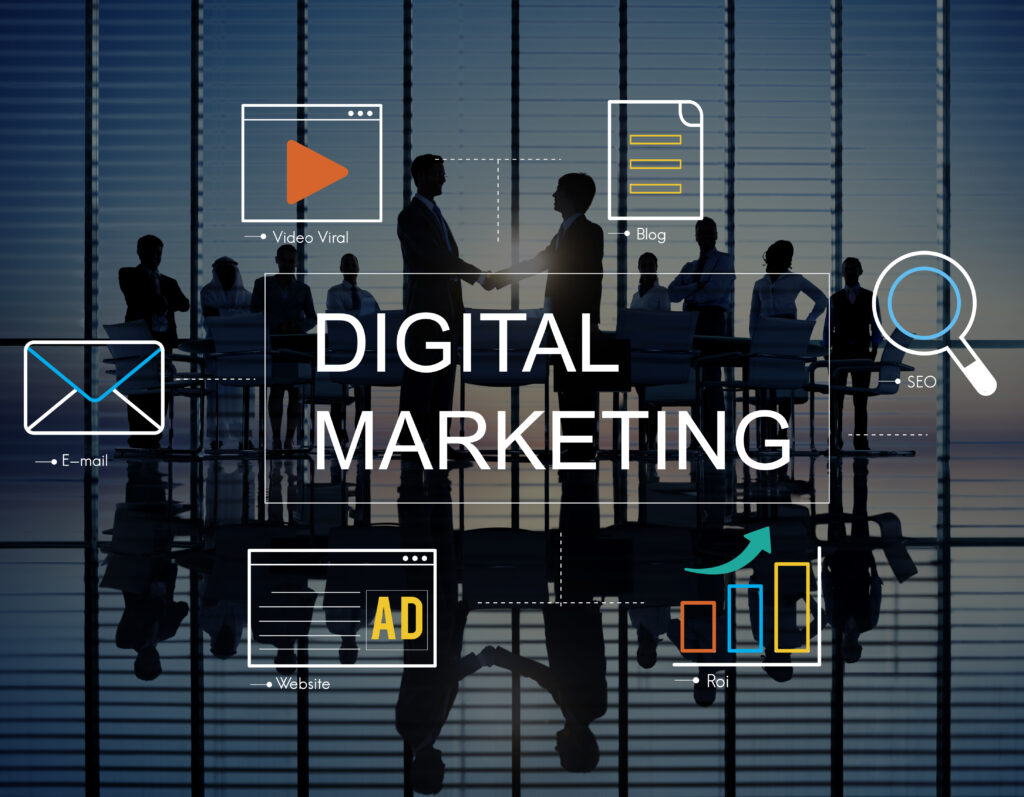
Digital marketing is essentially the promotion of products or services using online digital technologies, primarily on the internet, but also including mobile phones, display advertising, and any other digital medium. Here’s a breakdown of key aspects:
Key Components:
- Search Engine Optimization (SEO):
♦ This involves optimizing websites to rank higher in search engine results pages (SERPs) driving organic (non-paid) traffic. - Search Engine Marketing (SEM):
♦ This encompasses paid advertising on search engines, such as Google Ads, to increase visibility. - Social Media Marketing (SMM):
♦ Utilizing social media platforms like Facebook, Instagram, Twitter, and LinkedIn to connect with audiences, build brand awareness, and drive traffic. - Content Marketing:
♦ Creating and distributing valuable, relevant and consistent content to attract and retain a clearly defined audience. - Email Marketing:
♦ Using email to nurture leads, promote products or services, and build customer relationships. - Pay-Per-Click (PPC) Advertising:
♦ A model of internet marketing in which advertisers pay a fee each time one of their ads in clicked. - Affiliate Marketing:
♦ Where you earn commissions by promoting other companies products. - Analytics:
♦ Measuring and analyzing data to understand campaign performance and make data-driven decisions.
Why Digital Marketing Matters:
- Wider Reach: It allows businesses to reach a global audience.
- Targeted Marketing: Digital marketing enables precise targeting of specific demographics, interests, and behaviors.
- Measurable results: Digital marketing campaigns can be tracked and measured, providing valuable insights into their effectiveness.
- Cost-Effectiveness: Compared to traditional marketing, digital marketing can be more cost-effective.
- Increased Engagement: Digital channels facilitate two-way communication and engagement with customers.
In today’s digital age, a strong digital marketing presence is crucial for businesses of all sizes to succeed.